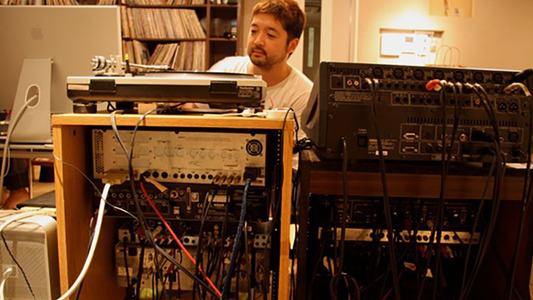
Max Richter – Sleep (2015)
By Rafi Mercer
A single, sustained note hums softly, like a room exhaling. A piano enters, unhurried, its chords falling like the slow rhythm of breath. Strings hover in long arcs, spacious, tender, deliberate. This is how Max Richter begins Sleep — an eight-hour composition released in 2015 and intended, quite literally, to be slept through. It is one of the most ambitious pieces of modern classical music of the century, not because of its scale alone but because of its philosophy: that music can be sanctuary, rhythm can be rest, and listening can be a ritual of care.
Richter, a German-born, British-based composer, had long been bridging classical tradition with contemporary sensibility. Works like The Blue Notebooks and Infra combined minimalist structures with cinematic emotion, appealing as much to film directors as to concert audiences. But with Sleep, he shifted the frame. Rather than music as drama, he asked: what if music were sustenance? What if an album could accompany you through the night, shaping your dreams, guiding your body into restoration?
The piece is vast but deceptively simple. Built from piano, strings, voice, and subtle electronics, it unfolds in repeating patterns, slow arcs, gentle cycles. Themes recur — a piano motif here, a string drone there — but always in evolution, always shifting just enough to remain alive. It is not designed for attention in the conventional sense. It is designed to coexist with the body, to align with circadian rhythm, to accompany rather than demand.
At its heart is the human voice: not lyrics, not words, but soprano lines sung by Grace Davidson. Her voice floats like light across the horizon, pure, wordless, outside of time. The effect is both intimate and cosmic. It is as though someone were singing to you, only you, while also addressing eternity.
The album was released in two versions: the full eight-hour piece, and a shorter, digestible version of about an hour. But to experience Sleep as intended is to encounter music differently. You cannot grasp it all. You surrender to it. It becomes part of your environment, your body, your unconscious. This is slow listening at its most radical: not passive background, but embodied immersion.
The cultural resonance was immediate. In an era of insomnia, distraction, and constant stimulation, Richter offered music as remedy. Performances were staged overnight, with audiences lying in beds rather than sitting in chairs. Critics hailed it as bold, generous, humane. It reached beyond classical circles into wellness, philosophy, everyday life. It was not elitist. It was not exclusionary. It was, instead, open to anyone who needed it.
What makes Sleep so powerful is its inclusivity. You do not need to know music theory, or minimalist history, or Richter’s previous work. You need only a willingness to pause. Women, men, young, old — the album treats every listener equally, offering the same gift: rest. It challenges the masculine-coded idea of music as conquest, as virtuosity, as spectacle. Instead, it proposes music as care, as nurture, as presence.
On vinyl, the shorter version of Sleep is particularly beautiful. The warmth of the pressing deepens the strings, the piano resonates in the room, the surface crackle blending with the drones. It feels tactile, alive. To put it on late at night is to create a ritual: lowering the needle, dimming the lights, allowing the music to fill the air until sleep takes over.
What endures is the album’s sincerity. Richter does not treat the listener as audience but as companion. He recognises the fragility of modern life — the exhaustion, the noise — and responds not with spectacle but with solace. He shows that music can be radical not only in complexity but in kindness, not only in virtuosity but in patience.
Nearly a decade on, Sleep continues to inspire. It has been performed in concert halls and sleeping spaces, streamed millions of times, used in homes across the world as nightly ritual. But beyond its reach, its meaning is simple: music can heal, if we let it. It can slow us down, cradle us, remind us that listening is not only about what we hear but about how we live.
Max Richter’s Sleep is less an album than an act of care. It is music as architecture for rest, a gift of stillness in a culture of speed. To put it on is to accept that gift, to surrender, to breathe, to sleep.
Rafi Mercer writes about the spaces where music matters. For more stories from Tracks & Tales, subscribe, or click here to read more.







